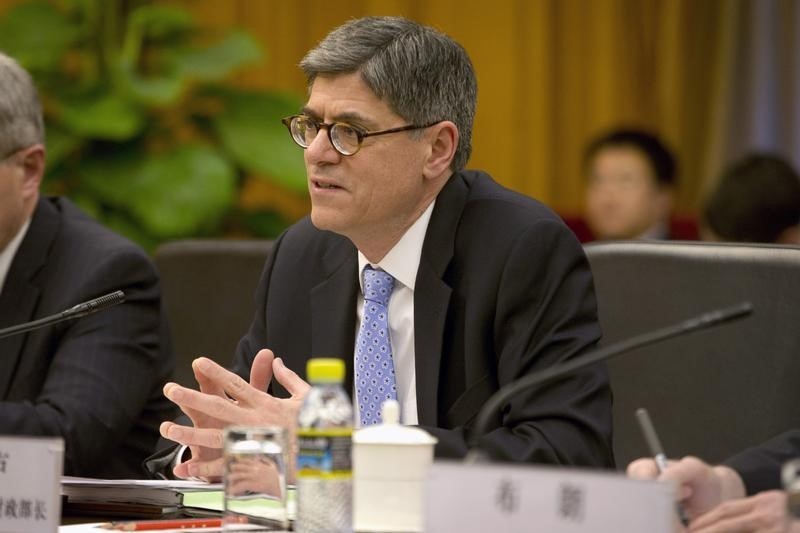WASHINGTON (Reuters) - The U.S. Congress is moving closer to approving IMF reforms, and lawmakers are now trying to find the best timing and vehicle for getting the historic legislation passed, U.S. Treasury Secretary Jack Lew said on Tuesday.
U.S. foot-dragging on reforms to the institution has blocked changes meant to give more voting power to emerging economies like China and India, frustrating countries around the world.
The Obama administration supports the reforms but has been unable to persuade the U.S. Congress to pass funding changes necessary for the agreement. The United States can block the IMF reforms because it holds a controlling share of votes.
"I would tell you that the conversations are more about when and how to do it, than they are whether to do it," Lew said about his talks with lawmakers on the IMF reforms. "So I think that is a positive change in the tone of the conversations. ...
"But our intent to do it is not sufficient. Congress needs to act," he said at a conference.
Some U.S. lawmakers worry that the IMF reforms would cost too much at a time of big budget deficits in Washington. They also have criticized the IMF's efforts to help struggling economies in Europe and the risks attached to billion-dollar IMF loans to countries like Greece.

"I don't think any institution can be judged by a record where if someone can find one thing they would have done differently, it becomes the basis for reconsidering the whole purpose of the enterprise," Lew said in response to criticism of the IMF's work in Europe.